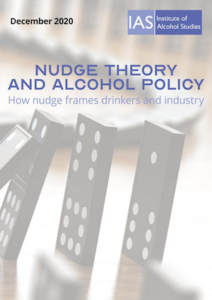View this report

Nudge theory aims to understand human decision making in order to optimise the outcomes from choices for decision makers. The theory has become increasingly popular amongst public health policymakers in recent years.
The use of nudge theory in public policy has been criticised; concerns include that nudge interventions frame their targets negatively, distracting attention from societal and economic drivers of harm.
Research is yet to identify how drivers such as the activities of multi-national producers of unhealthy commodities are framed in nudge interventions.
Recent UK Government alcohol policy including the One You campaign and low alcohol product initiatives have embodied nudge principles. This report uses these policies to examine how individuals and alcohol industry actors are framed within public health nudge policy interventions.
A need to preserve choice and specific nudge strategies (eg norm-setting) were frequently referenced throughout these policies’ materials and documentation.
The public were framed as blameworthy for their own alcohol health problems, with individuals’ control over their own drinking emphasised, and failures to maintain control framed as shameful. This suggests a lack of understanding of or attention to the complexity of psychological factors in alcohol consumption.
Alcohol industry figures were framed as reliable policy actors, with any who engage in behaviour harmful to public health described as outliers.
This framing risks intensifying the clouding of economic or societal drivers of public health problems through nudge policies, as identified in prior research, and might undermine support for better evidenced public health alcohol measures, such as pricing interventions.
View this report
